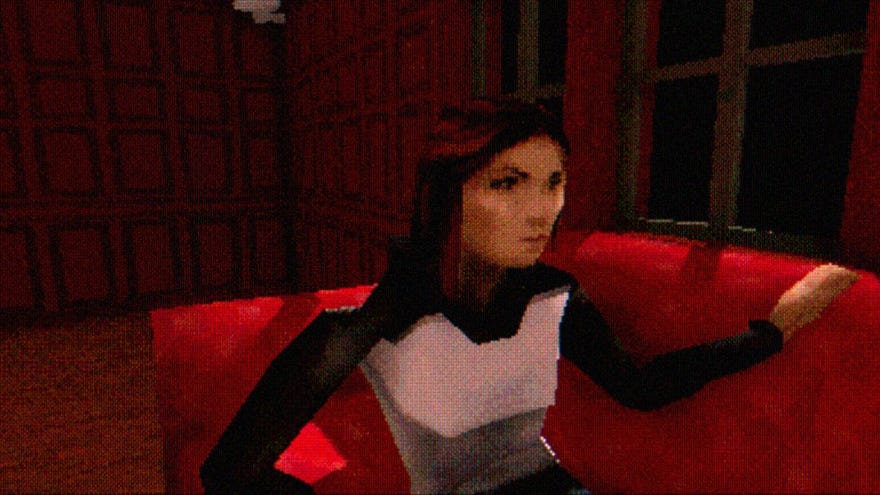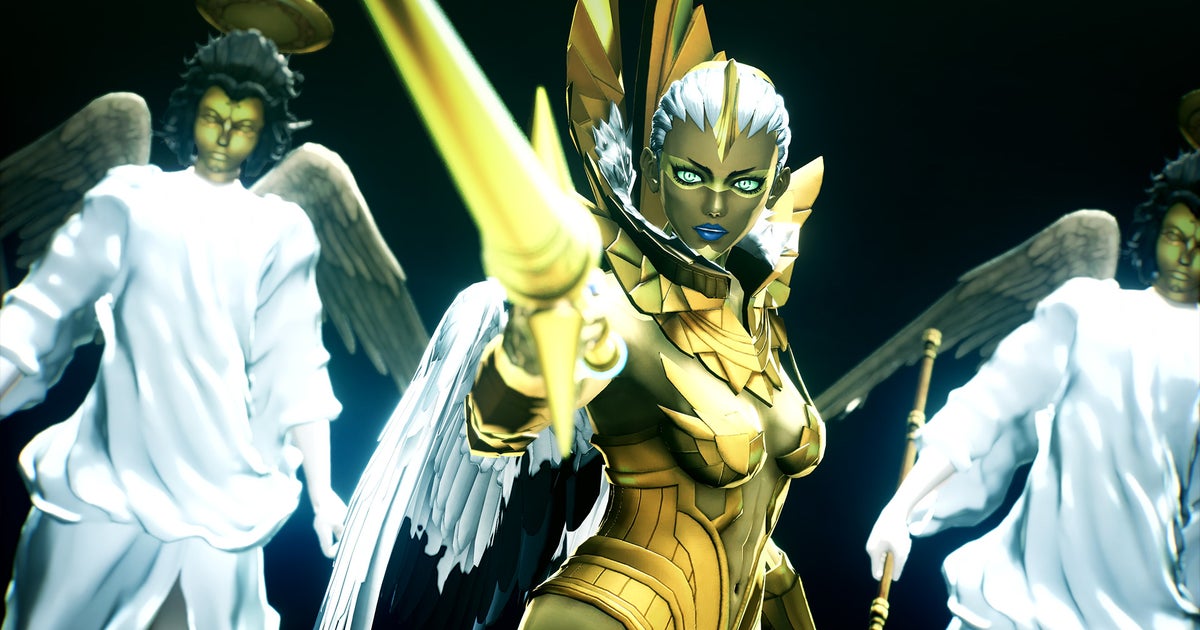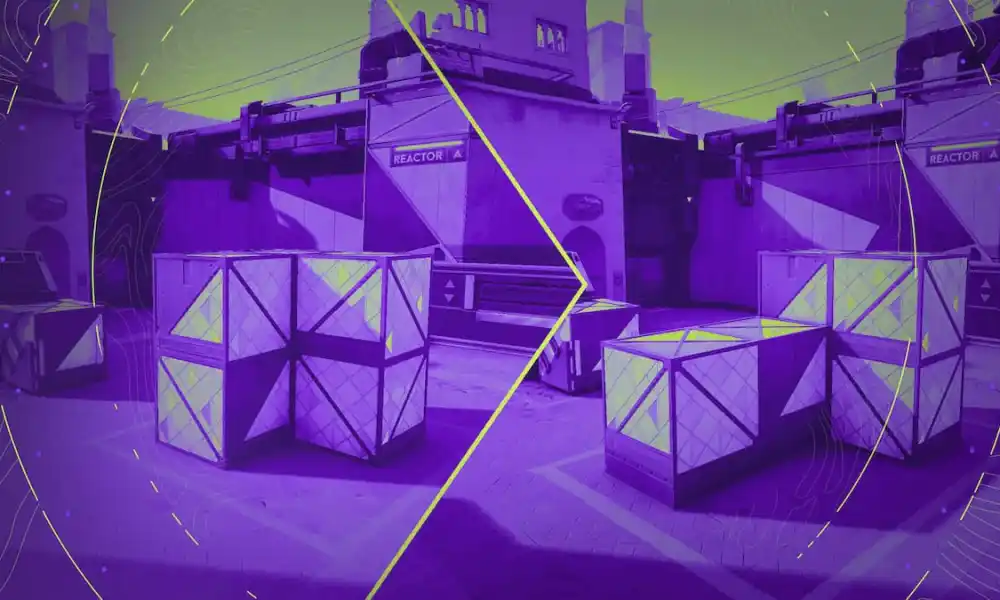If you woke up in a mysterious mansion, with no memory of how you got there and only a walkie-talkie and a bunch of security cameras for company, how d'you reckon you'd handle it? Personally I know, sure as eggs is eggs, that I would absolutely go to pieces. I'm not hitting the end credits of The Tartarus Key in real life, but fortunately, it's a nails thriller puzzle game that fuses PS1-style retro graphics with Saw-esque murder traps. Plus, you know, it's only about six hours end to end, which isn't bad for a semi-magical kidnap plot.
In this situation I am not me, of course, but Alex Young, and Alex upon escaping a locked study (an easy warm-up puzzle involving postcards) she finds and frees Torres, an ex-cop turned private detective, who sets up a base of operations around the mysterious mansions main fireplace. From there game's rhythm is clearing the different wings of the house by completing increasingly difficult puzzle rooms, each eventually culminating in finding a new person to save from a new death trap - concocting the antidote for poison or following the instructions to get through an electrocuted floor maze.
It's an odd group, but if you rescue everyone you start to see the edges of a wider story. There's a nice layering of paranoia, because most of the puzzles have an element of, for want of a better word, magic to them. One of the very first sees you tasked with getting an academic out of a living flesh-blob, and failure results in it and him vanishing into nowhere. You also find an underground lab with notes on scientific experiments, and a holding cell slash testing chamber - but given that next door is a giant meat freezer sokoban, is it not the case that the lab is just another puzzle room set? The low-poly, low-draw distance style of everything really adds to this, and you keep suspecting that some new puzzle or trap or maybe a weird murderer is going to suddenly loom out of the darkness in front of you. It's the kind of head melting I haven't had since playing Old Gods Rising.
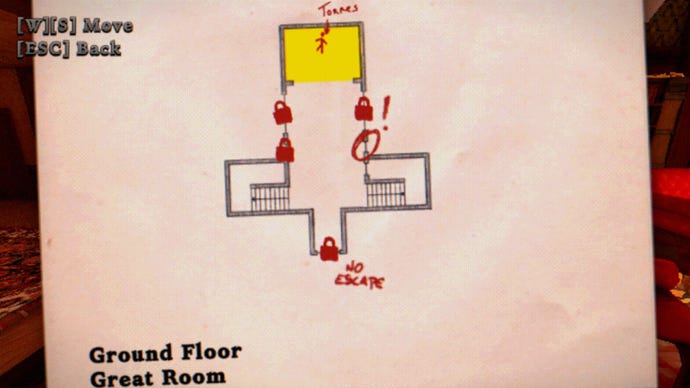 This is the very first map iteration, and it grows as you unlock new doors. The notations are super helpful, but they're the most help you get in the game.
This is the very first map iteration, and it grows as you unlock new doors. The notations are super helpful, but they're the most help you get in the game.
Rescuing everyone is by no means guaranteed, though. There are multiple endings to The Tartarus Key, and while you can savescum your way through it to make sure you save William the annoying rich guy and Kai the potential test subject, I'd recommend just trying your best and see what you get. It really is difficult, though. You don't get second chances with the critical puzzles, objects you can interact with aren't helpfully highlighted, and there is no hint system. Despite that, it's solvable - you just have to take your time. It's almost an immersive sim in how the onus is on you to pay attention to what you can see and pick up and read.
For part of the puzzle to save William involving a grid and shapes, I turned the game off, thought about it for an hour, and then came back and solved it. Another bit of it requires you to take note of the temperature of something from the description of it in your inventory, and then find a way to change that in the environment. There's a room where you need to match colours of handwriting with grid coordinates. It's all doable, but it asks more of you than most puzzle games - though it helps that, because this is like a really intense corporate bonding session where you have to do a legally-distinct jigsaw-themed serial killer escape room, you know that everything you need is in the room with you.
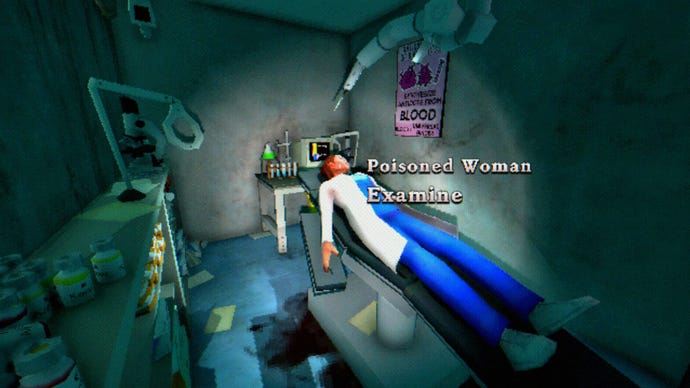
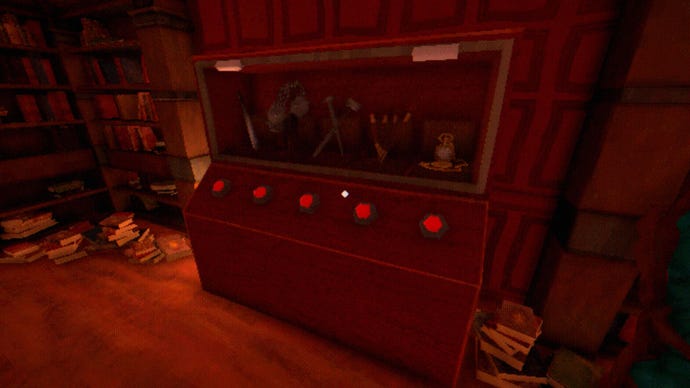
It also runs the gamut of thriller themes, in a subtle but pervasive way that I really liked. There's the creepy mansion, of course, but then you've got the hidden weird science lab, you've got the Satanic-ish ritual room, you've got the ancient society studying the stars, and the meat freezer gave me big 'early scene in a splatter horror' vibes. I found The Tartarus Key is so clearly and lovingly designed, and such a weirdo breath of fresh air right now, that I'd go so far as to call it a must play for puzzle fans.
If you're allergic to puzzle games, though, it's not a gentle introduction to the genre. Depending on the ending you get, it might feel a little abrupt at the finish, but there are some puzzles in there that feel revelatory to solve. You feel smarter than one of those sheltered Mensa kids whose parents force them to learn to play the tuba. I figured out that bit with the blood serums, godammit, I should be eligible for lifetime membership of your little genius-person club without any tests.
This review is based on a review build of the game provided by the publisher Armor Games Studios.

 11 months ago
112
11 months ago
112
